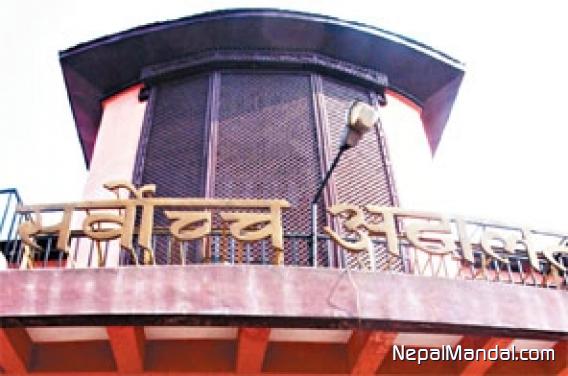Will Nepal’s Supreme Court decide to provide for participation of indigenous peoples in constitution making process through their freely chosen representatives?

Nepal’s Supreme Court (SC) has scheduled to give its decision on a case filed by indigenous peoples organizations regarding exclusion of indigenous peoples’ freely chosen representatives from the constitution making process on 3 February 2013.
In 2009, immediately after the election of Constituent Assembly (CA), different indigenous peoples’ organizations had filed a writ petition in the Supreme Court alleging their exclusion of indigenous peoples in constitution making process in contravention of constitutional norms and Nepal’s international treaty obligations. The writ petition formally invoked provisions of International Labour Organization Convention No. 169 and the International Convention on the Elimination of all forms of Racial Discrimination (ICERD) ratified by Nepal and the UN Declaration on the Rights of Indigenous Peoples (UNDRIP) that Nepal voted in favor of.
ICERD Article 5(c) guarantees the right, without discrimination of any kind to participate in election and to take part in government, and the conduct of public affairs, at any level. Further, UNDRIP provides for the right of indigenous peoples to participate in decision-making in matters which would affect their rights, through representatives chosen by themselves in accordance with their own procedures as well as to maintain and develop their own indigenous decision-making institutions.
The discriminatory effect of sole reliance on the political party system exclusively controlled by Bahun/Chhetri elites for indigenous peoples to participate in constitution making process was compounded by the refusal to register political parties that claim to represent indigenous peoples on the basis of provision in Nepal’s Interim Constitution that prohibits a political institution that may jeopardize social harmony on the basis of race, ethnicity, religion or sect, the petition claimed.
While the petition had requested an interim SC order at the same time that was ignored, the State in response to the petition had argued that the petitioners’ arguments should be dismissed for failure to state a colorable claim and indigenous people were presently adequately represented in the CA irrespective of the manner by which they were selected and the party discipline conditions applied.
The State’s submission to the SC was accompanied by a number of affidavits, including one by then CA Chairperson, explaining that it was not possible to establish a separate committee on indigenous people within the CA and moreover, in 2009, he had already rejected the establishment of a separate committee on indigenous peoples.
Furthermore, in response to related communications from the indigenous peoples organizations to Committee on the Elimination of Racial Discrimination and UN Special Rapporteur on the Rights of Indigenous Peoples, the Committee and Rapporteur in 2009 and 2010 had repeatedly called for establishment of special mechanism to ensure effective participation of indigenous peoples and obtain their free, prior and informed consent in constitution making process.
However, indigenous people had no say in choosing who would represent them in the CA that ultimately failed to produce a new constitution in 2012 as a result of disagreements among political parties on future federal set up of Nepal – a key concern of indigenous peoples. Though the SC decision is coming now after the demise of CA, it will hold great significance for future constitution writing or reform and other decision-making matters of Nepal that affect indigenous rights. Whether the SC will decide in favor of the rights of indigenous peoples will be seen on 3 February 2013.
For more information, click here to read about the case on the website of UN Special Rapporteur on the Rights of Indigenous Peoples or here to see Lawyers’ Association for Human Rights of Nepalese Indigenous Peoples page on Forest Peoples Programme website or here.
News Location:
Related Stories
 Supreme Court decision on case relating to participation of indigenous peoples in constitution making process deferred until 12 February
Supreme Court decision on case relating to participation of indigenous peoples in constitution making process deferred until 12 February




